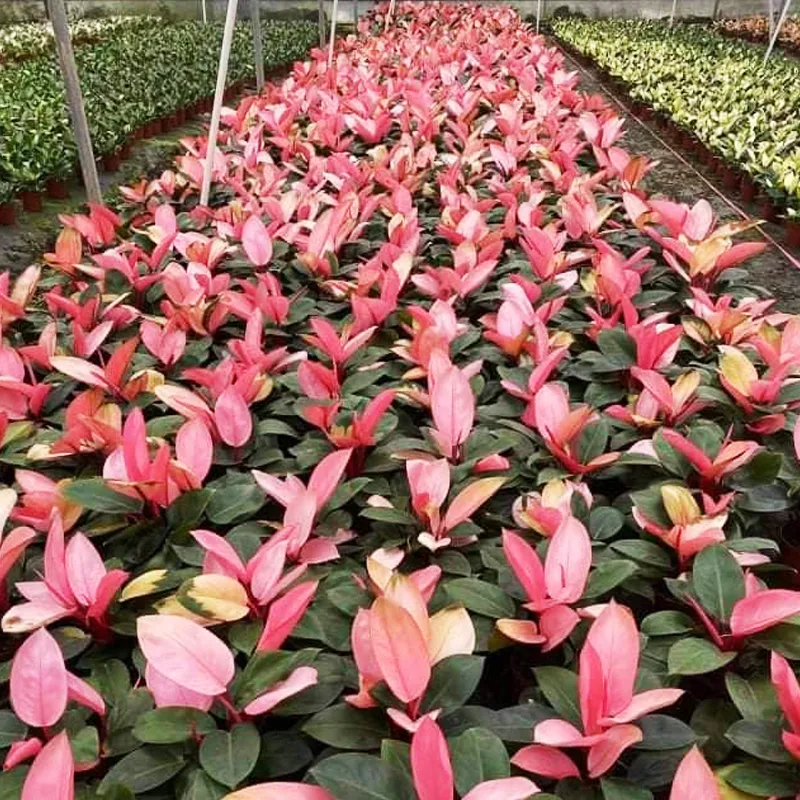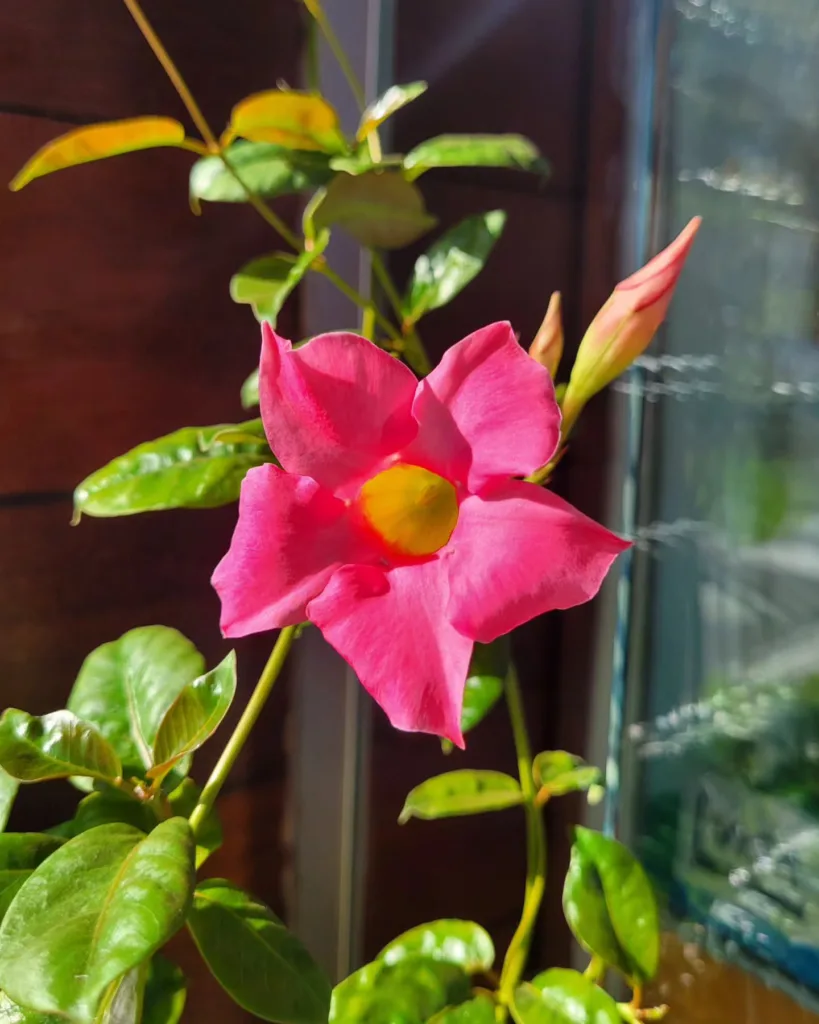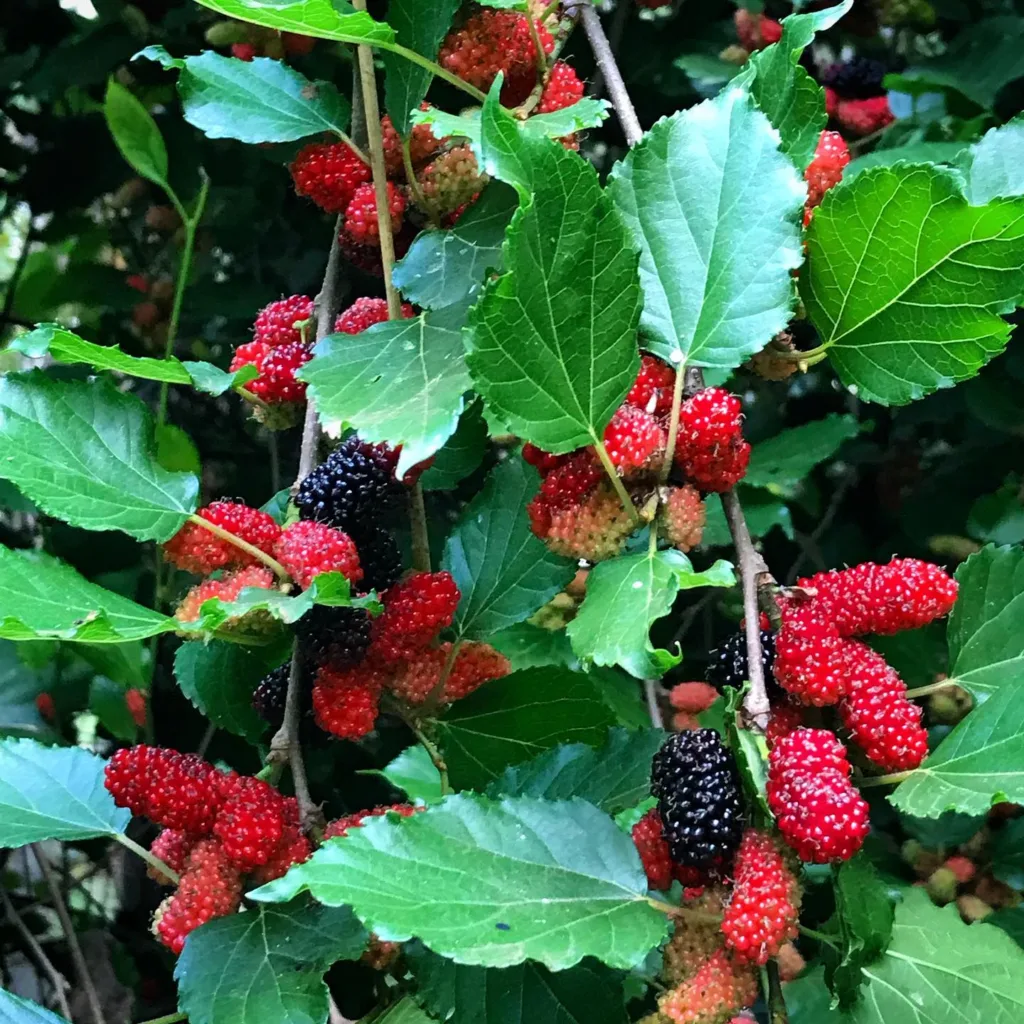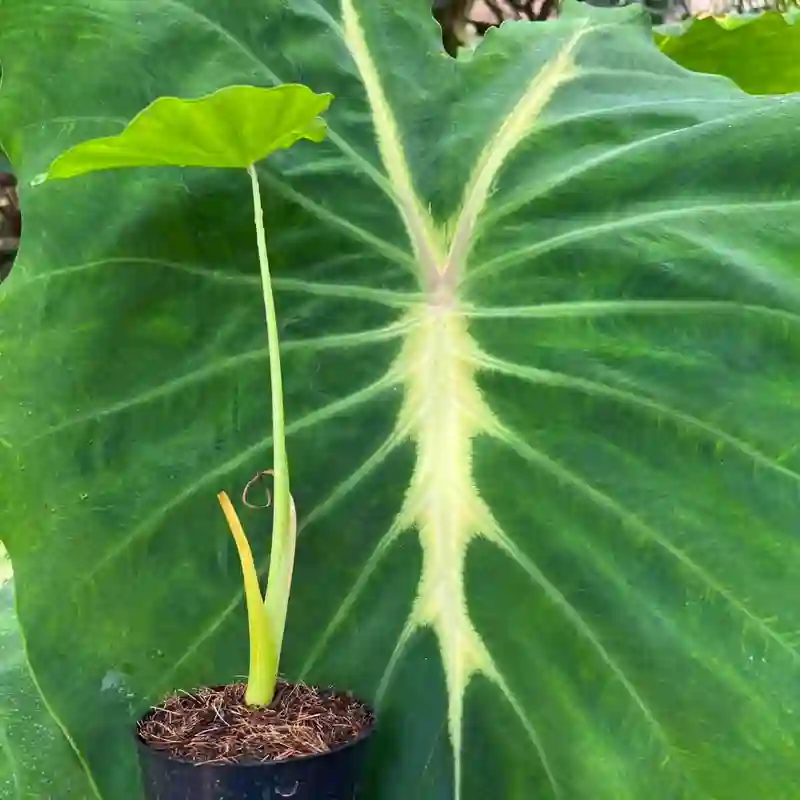Heracleum: A Giant Among Herbs
I’ve always been fascinated by the natural world, especially the diversity and resilience of plant life. Lately, I’ve become particularly interested in the genus Heracleum, more commonly known as hogweed or cow parsnip. These plants are not your average garden variety flowers; they are imposing figures in the landscape, often towering over other vegetation. Their size and architectural structure give them a presence that is hard to ignore, and their fascinating biology and ethnobotanical uses make them even more intriguing.
What is Heracleum?
Heracleum is a genus of biennial and perennial herbs belonging to the Apiaceae family, which also includes carrots, parsley, and celery. These plants are native to the temperate regions of the Northern Hemisphere and can be found in a variety of habitats, from meadows and forests to roadsides and riverbanks.
What truly sets Heracleum apart is its size. Some species, like the infamous giant hogweed (Heracleum mantegazzianum), can reach heights of over 15 feet! Their sturdy, hollow stems and large, deeply lobed leaves give them a distinctive, almost prehistoric look. In the summer, they produce massive umbels (umbrella-like clusters) of small, white flowers that attract a myriad of pollinators.
What does Hogweed look like?
Hogweed is a striking plant with large, jagged leaves and thick, hollow stems. The leaves can reach up to five feet in length and have a distinctive, deeply lobed appearance. The plant produces clusters of small white flowers arranged in a flat-topped, umbrella-like shape known as an umbel. Giant Hogweed can grow up to 14 feet tall, making it a towering presence in the landscape.
How to get rid of Giant Hogweed?
Getting rid of Giant Hogweed requires caution due to its toxic sap. It’s best to wear protective clothing, including gloves, long sleeves, and eye protection. Methods include:
- Manual Removal: Carefully dig out the roots, ensuring all parts are removed to prevent regrowth.
- Herbicides: Use glyphosate-based herbicides specifically labeled for Hogweed.
- Professional Help: For larger infestations, contacting a professional eradication service is advisable.
Is Hogweed poisonous?
Yes, Hogweed is highly poisonous. The sap contains furanocoumarins, which cause severe skin irritation and blistering when exposed to sunlight. Contact with the sap can lead to long-lasting scars and, in severe cases, blindness if it comes into contact with the eyes. Immediate washing of the affected area with soap and water is crucial if contact occurs.
Can you eat Hogweed?
While some Hogweed species have been used in traditional medicine and cuisine, it is not recommended to eat them due to the risk of severe allergic reactions and toxicity. The danger of mistaking it for its poisonous relatives also makes foraging Hogweed highly risky.
Where is Hogweed native to?
Common Hogweed is native to Europe and parts of Asia. Giant Hogweed is native to the Caucasus region and Central Asia. Both species have been introduced to various parts of North America and Europe, where they are considered invasive due to their rapid spread and impact on local ecosystems.
Can goats eat Hogweed?
Goats can eat Hogweed, and they are sometimes used in ecological management to control the spread of invasive plants, including Hogweed. However, care must be taken as the sap can still cause harm to the animals. It’s crucial to ensure they are not exposed to the sap during grazing.
Hogweed vs Hemlock
Hogweed and Hemlock are both members of the Apiaceae family, but they have distinct differences. Hemlock (Conium maculatum) is highly toxic and can be fatal if ingested. It has finely divided leaves and small, white flowers in umbrella-shaped clusters. Hogweed has larger, more lobed leaves and larger flower clusters.
Hogweed vs Queen Anne’s Lace
Queen Anne’s Lace (Daucus carota) is often mistaken for Hogweed due to its similar flower structure. However, Queen Anne’s Lace is smaller, typically growing up to 4 feet tall, with finely divided, feathery leaves. It also has a characteristic dark purple flower in the center of the umbel.
Hogweed vs Cow Parsnip
Cow Parsnip (Heracleum maximum) is a native plant similar in appearance to Hogweed but smaller, usually growing up to 8 feet tall. Its leaves are broader and less deeply lobed. While Cow Parsnip can also cause skin irritation, it is less toxic than Giant Hogweed.
Hogweed vs Giant Hogweed
Giant Hogweed (Heracleum mantegazzianum) is much larger than Common Hogweed, reaching heights of up to 14 feet. It has more pronounced purple blotches on its stem and larger leaves and flower clusters. Both can cause skin irritation, but Giant Hogweed is significantly more dangerous.
Hogweed vs Angelica
Angelica (Angelica spp.) is another member of the Apiaceae family with large, umbrella-like flower clusters. However, Angelica plants have a sweet, aromatic scent and are less toxic than Hogweed. They also have smooth stems without the purple blotches characteristic of Hogweed.
Hogweed vs Cow Parsley
Cow Parsley (Anthriscus sylvestris) is often mistaken for Hogweed due to its similar white flower clusters. However, Cow Parsley is smaller, with finely divided leaves and a more delicate overall appearance. It grows up to 3 feet tall and lacks the hazardous sap of Hogweed.
Hogweed vs Wild Parsnip
Wild Parsnip (Pastinaca sativa) has similar yellow flower clusters but grows shorter, up to 5 feet tall. Its leaves are pinnate with saw-toothed edges. Wild Parsnip also contains furanocoumarins, which can cause skin irritation, but it is less hazardous than Hogweed.
Hogweed vs Yarrow
Yarrow (Achillea millefolium) has finely divided, feathery leaves and small white or pink flower clusters. It grows up to 3 feet tall and lacks the toxic sap of Hogweed. Yarrow is often used in traditional medicine and is not harmful to touch.
Hogweed vs Elderflower
Elderflower (Sambucus nigra) comes from the same plant as Elderberry and refers to the white, fragrant flowers used in culinary and medicinal applications. Elderflower clusters are smaller and less imposing than Hogweed’s flower clusters and are safe to handle.
Hogweed vs Milkweed
Milkweed (Asclepias spp.) is known for its role in supporting monarch butterflies. It has thick, milky sap and clusters of pink, orange, or white flowers. Milkweed leaves are broad and smooth, contrasting with Hogweed’s deeply lobed leaves. Milkweed is not harmful to touch but is toxic if ingested.
Understanding these distinctions is crucial for safely navigating areas where these plants grow. Hogweed’s imposing appearance and hazardous nature make it essential to identify and manage correctly.
A Diverse Genus
The genus Heracleum is surprisingly diverse, with over 90 recognized species:
- Heracleum abyssinicum (Boiss.) C.Norman
- Heracleum aconitifolium Woronow
- Heracleum akasimontanum Koidz.
- Heracleum albovii Manden.
- Heracleum amanum Boiss. & Kotschy
- Heracleum angustisectum (Stoj. & Acht.) Peev
- Heracleum anisactis Boiss. & Hohen.
- Heracleum antasiaticum Manden.
- Heracleum apiifolium Boiss.
- Heracleum argaeum Boiss. & Balansa
- Heracleum asperum (Hoffm.) M.Bieb.
- Heracleum austriacum L.
- Heracleum bhutanicum M.F.Watson
- Heracleum biternatum W.W.Sm.
- Heracleum candicans Wall. ex DC.
- Heracleum × carbonnieri Reduron, Michaud & J.Molina
- Heracleum carpaticum Porcius
- Heracleum chorodanum (Hoffm.) DC.
- Heracleum crenatifolium Boiss.
- Heracleum cyclocarpum K.Koch
- Heracleum dalgadianum S.M.Almeida
- Heracleum dissectifolium K.T.Fu
- Heracleum dissectum Ledeb.
- Heracleum egrissicum Gagnidze
- Heracleum elgonense (H.Wolff) Bullock
- Heracleum fargesii H.Boissieu
- Heracleum forrestii H.Wolff
- Heracleum franchetii M.Hiroe
- Heracleum freynianum Sommier & Levier
- Heracleum gorganicum Rech.f.
- Heracleum grandiflorum Steven ex M.Bieb.
- Heracleum hemsleyanum Diels
- Heracleum henryi H.Wolff
- Heracleum humile Sm.
- Heracleum incanum Boiss. & A.Huet
- Heracleum jacquemontii C.B.Clarke
- Heracleum kansuense Diels
- Heracleum kingdonii H.Wolff
- Heracleum kurdistanicum Rastegar, Maroofi & Tabad
- Heracleum lehmannianum Bunge
- Heracleum leskovii Grossh.
- Heracleum ligusticifolium M.Bieb.
- Heracleum likiangense H.Wolff
- Heracleum mantegazzianum Sommier & Levier
- Heracleum maximum W.Bartram
- Heracleum moellendorffii Hance
- Heracleum nyalamense R.H.Shan & T.S.Wang
- Heracleum oncosepalum (Hand.-Mazz.) Pimenov & Kljuykov
- Heracleum oreocharis H.Wolff
- Heracleum orphanidis Boiss.
- Heracleum ossethicum Manden.
- Heracleum paphlagonicum Czeczott
- Heracleum pastinaca Fenzl
- Heracleum pastinacifolium K.Koch
- Heracleum persicum Desf. ex Fisch., C.A.Mey. & Avé-Lall.
- Heracleum peshmeniana Ekim
- Heracleum piliferum Kljuykov & Lyskov
- Heracleum pinnatum C.B.Clarke
- Heracleum platytaenium Boiss.
- Heracleum ponticum (Lipsky) Schischk. ex Grossh.
- Heracleum pubescens (Hoffm.) M.Bieb.
- Heracleum pumilum Vill.
- Heracleum rapula Franch.
- Heracleum rawianum C.C.Towns.
- Heracleum rechingeri Manden.
- Heracleum × rodnense Nyár. & Todor
- Heracleum roseum Steven
- Heracleum scabridum Franch.
- Heracleum scabrum Albov
- Heracleum schansianum Fedde ex H.Wolff
- Heracleum schelkovnikowii Woronow
- Heracleum sibiricum L.
- Heracleum sommieri Manden.
- Heracleum sosnowskyi Manden.
- Heracleum souliei H.Boissieu
- Heracleum sphondylium L.
- Heracleum stenopteroides Fedde ex H.Wolff
- Heracleum stenopterum Diels
- Heracleum subglabrum Kitam.
- Heracleum subtomentellum C.Y.Wu & M.L.Sheh
- Heracleum sumatranum Buwalda ex Steenis
- Heracleum taylorii C.Norman
- Heracleum tiliifolium H.Wolff
- Heracleum trachyloma Fisch. & C.A.Mey.
- Heracleum vicinum H.Boissieu
- Heracleum villosum (Hoffm.) Fisch. ex Spreng.
- Heracleum wenchuanense F.T.Pu & X.J.He
- Heracleum wilhelmsii Fisch. & C.A.Mey.
- Heracleum wolongense F.T.Pu & X.J.He
- Heracleum woodii M.F.Watson
- Heracleum xiaojinense F.T.Pu & X.J.He
- Heracleum yungningense Hand.-Mazz.
Beauty and Danger
While Heracleum species can be visually stunning, it’s crucial to remember that some, like giant hogweed and Sosnowsky’s hogweed, pose a serious health risk. Their sap contains furanocoumarins, chemicals that can cause phytophotodermatitis, a painful skin reaction that results in blisters and long-lasting discoloration when exposed to sunlight.
Therefore, it’s important to exercise caution and learn to identify these species correctly. If you come into contact with the sap, wash the affected area immediately with soap and water and seek medical attention if necessary.
Traditional Uses and Modern Research
Despite the potential dangers of some species, Heracleum has a long history of use in traditional medicine and as a food source in various cultures. Some species have been used to treat a variety of ailments, including digestive problems, skin infections, and respiratory issues. The young shoots and leaves of certain species are edible and can be consumed after proper preparation.
Modern research has also begun to explore the potential therapeutic benefits of Heracleum. Studies have shown that some species possess anti-inflammatory, antimicrobial, and antioxidant properties. These findings suggest that Heracleum may hold promise for the development of new drugs and therapies.
Conclusion
Heracleum is a captivating genus of plants that embodies both beauty and danger. While some species pose a risk to human health, others have been valued for centuries for their culinary and medicinal properties. As we continue to learn more about these fascinating plants, we can appreciate their ecological importance and explore their potential benefits for human well-being. However, it’s crucial to remember that respect and caution are essential when interacting with these giants of the plant world.
If i die, water my plants!



